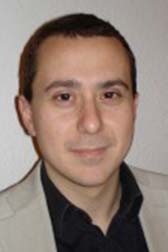The program will be composed by regular, special and poster sessions, and workshops. Furthermore, plenary lectures will be given by well-known scientists in the field of NeuroRehabilitation. The program will aim at enriching the knowledge of the participants, widening their point of view on specific topics related to NeuroRehabilitation, and getting in closer contact with experts in this field.
Conor is the founder of the Harvard Biodesign Lab, which brings together researchers from the engineering, industrial design, apparel, clinical and business communities to develop new technologies and translate them to industrial partners. His research focuses on applying disruptive technologies to the development of robotic devices for augmenting and restoring human performance. His current research interests include new approaches to design, manufacture and control of wearable robotic devices and characterizing their performance through biomechanical and physiological studies. He leads a team of researchers on the DARPA Warrior Web project to develop a soft exosuit that can assist with locomotion that can perform small levels of assistance to a wearer. The exosuit’s function is based on a detailed understanding of human walking and is soft and pliable, unlike traditional exoskeletons that use rigid components. The long term goal is to develop fully portable wearable robots to assist the disabled and able-bodied and further the scientific understanding of how humans interact with such machines. His group is also working on the modeling and design of fluidic-based soft robotics for cardiac applications and applying emerging meso-scale manufacturing approaches to the design of smart medical tools for the minimally invasive diagnosis and treatment of disease. Given his broad interests in medical devices and robotics, he collaborates closely with Wyss staff in the Bioinspired Robotics and Anticipatory Medical and Cellular Devices platforms. In addition, he is passionate about educating future innovators and he has established the Harvard Medical Device Innovation Initiative that provides students with the opportunity to collaborate with clinicians in Boston and emerging regions such as India.
Conor is Associate Professor of Mechanical and Biomedical Engineering at the Harvard John A. Paulson School of Engineering and Applied Sciences and a Core Faculty Member at the Wyss Institute for Biologically Inspired Engineering at Harvard University. Conor received his B.A.I and B.A. degrees in Mechanical and Manufacturing engineering from Trinity College in Dublin, Ireland, in 2003, and M.S. and Ph.D. degrees in Mechanical Engineering from the Massachusetts Institute of Technology in 2006 and 2010. He has been the recipient of over a dozen invention, entrepreneurship, and student mentoring awards including the MIT $100K business plan competition, Whitaker Health Sciences Fund Fellowship, and the MIT Graduate Student Mentor of the Year.
After a period (2002-2004) as Research Assistant Professor at Politecnico di Torino, he moved to Aalborg University, Denmark, where he was an Associate Professor in Biomedical Engineering (2004-2008) and then Full Professor in Motor Control and Biomedical Signal Processing (2008-2010). In the latter period, he has been the Head of the Research Group on Neural Engineering and Neurophysiology of Movement at Aalborg University. In 2010 he was appointed Full Professor and Founding Chair of the Department of Neurorehabilitation Engineering at the University Medical Center Göttingen, Georg-August University, Germany, within the Bernstein Center for Computational Neuroscience Göttingen. He is currently the Chair for Neuroinformatics of the Bernstein Focus Neurotechnology of Göttingen. His research spans engineering, physiology, neuroscience, and clinical sciences in a translational approach and focuses on the study of neural control of movement and on methods to replace, restore, and modulate lost or impaired motor functions.

